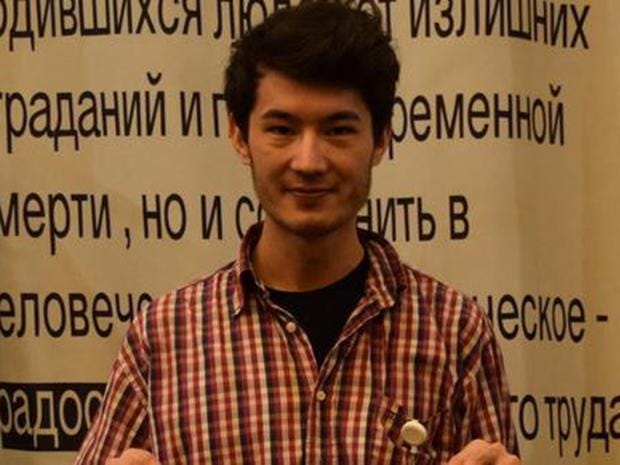Russia Trying to Deport Gay Reporter to Uzbekistan, A Death Sentence

He was an "extremely talented" reporter who spoke "eight or nine languages", Kostyuchenko said, and had written movingly about the refugee situation in Russia.
"We started out as colleagues but now we are very close, he is so kind," she said. "He has great sympathy for everyone. He always tries to understand everyone."
"He always tries to defend the person in the weak position," Kostyuchenko explained, describing how, when Feruz overheard a man make a sexist remark at her, "he immediately started fighting with him – not physically or anything like that — but he said, 'No! It's is very disrespectful, you cannot speak to her like that.' I was shocked!"
"He's like that: He sees some injustice and he fights it."
"We are so shocked and angry, and we are ready to fight to the end," she said. "Everybody loves him. Everybody signed the petition to our president, I mean from chief editor to the people working in our cafeteria: everybody."
Kostyuchenko said when she spoke to Feruz earlier he asked her to bring him cigarettes and notepaper. "'Paper?' I asked. 'Yeah, because I am finishing my reporting from here,'" she explained. "He is a true-born reporter and we need him."
"It's as close to a death sentence as it can be," Denis Krivosheev, Amnesty International's deputy program director for Europe and Central Asia, told BuzzFeed News from London. "The details ... just do not bear thinking about."
"Should he go back, at the very least, he will be subjected to criminal prosecution for being gay, which is a crime in Uzbekistan. It is a crime punishable by prison."
Members of the LGBT community in Uzbekistan face constant threats and abusive from Uzbek authorities. A Human Rights Watch report earlier this year noted that "police use blackmail and extortion against gay men, threatening to out or imprison them". The community faces "deep-rooted homophobia and discrimination".
Krivosheev said that if the deportation went ahead, Feruz "has little chance of justice. He is facing a very real risk of torture and ultimately this would mean many years in a very horrible prison."
"It is quite unusual that Putin's spokesperson will be answering questions about this, and clearly indicated that Putin is aware of this case."
The Kremlin's spokesperson, Dmitry Peskov, yesterday said that the Russian leader was "aware of the existence" of Feruz's case, and that it was impossible "to close one's eyes" to the situation.
On Friday, the European Court of Human Rights froze Feruz's deportation order, according to his lawyer Kirill Koroteyev.
Koroteyev, writing on Facebook, said that the court in Strasbourg had stated that the Russian court could not deport Feruz. Radio Free Europe reported that the court had given the reporter until the end of September to file a new asylum application.
It follows Europe's commissioner for human rights urging Russia to rethink the decision, and stop Feruz's immediate deportation, earlier this week.
"States have a duty to ensure a safe and enabling environment for the work of human rights defenders and journalists, and to protect them from reprisals," Commissioner Nils Muižnieks wrote on the ECHR Facebook page on Wednesday.
"It should be recalled that international law prohibits sending a person to a country where there are substantial grounds for believing that the person may be subjected to torture or ill-treatment."
A Change.org petition calling on the Russian authorities to reverse the decision has gathered almost 50,000 signatures.
The hashtag, #ОтвалиОтАли, ("Hands Off Ali") is being used by reporters across Russia to highlight the case.
Sources: Independent and Buzzfeed
- Get link
- X
- Other Apps
Labels:
Anti Gay Russia
Gay Media
Russia-Nazi like
Comments